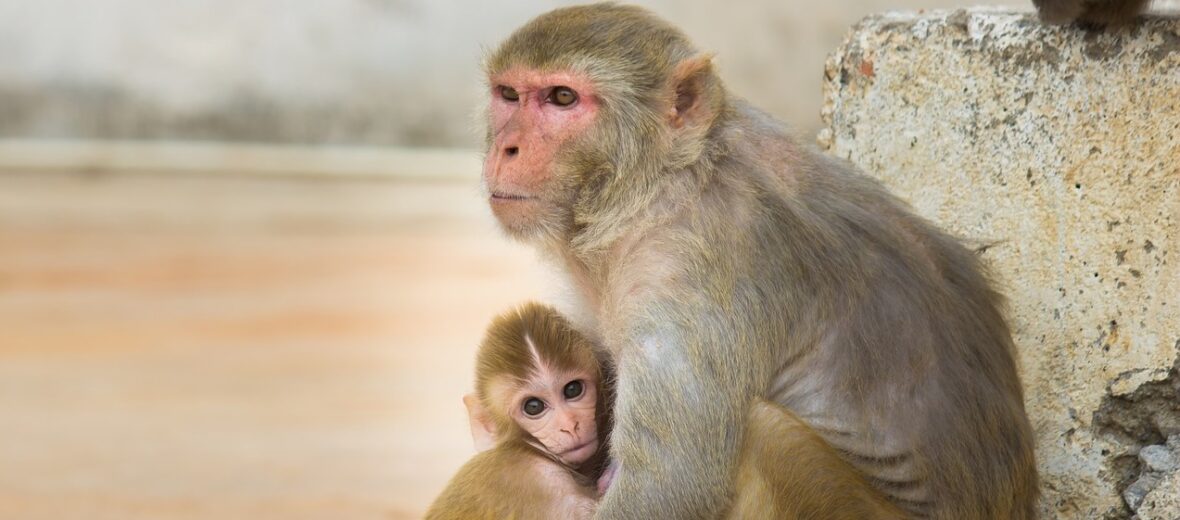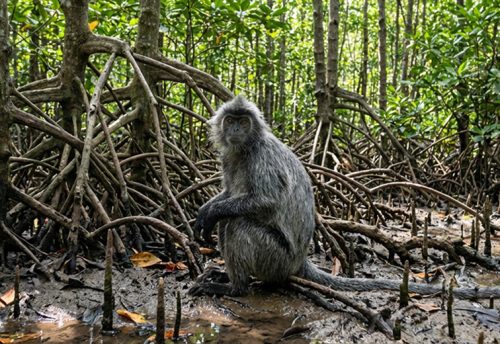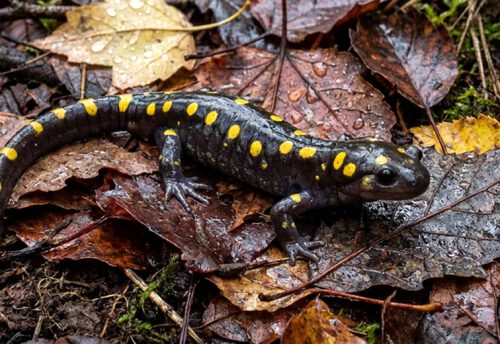
The rhesus macaque monkey is an old world monkey. This means it doesn’t rely, in part, on a prehensile tail and is from African or Asian decent. Rhesus macaques are native to Afghanistan, Bangladesh, Burma, southern China, India, Nepal, Pakistan, Thailand, Vietnam, to name a few. They can be found from sea level to nearly 9,000 foot elevations. Rhesus macaque monkeys are listed as Least Concern by the IUCN.
First the Stats…
Scientific name: Macaca mulatta
Weight: Up to 17 lbs.
Length: Up to 21 inches, plus a 30+ inch tail
Lifespan: Up to 25+ years
Now on to the Facts!
1.) Macaques are diurnal (active during the day).
2.) These monkeys are both terrestrial (spend all or part of their time on land) and arboreal (spend all or part of their time in trees).
3.) They are an aquatic species that loves to spend time bathing in water.
4.) Babies can swim when only a few days old.
5.) Troops can have up to 200 members with there being 4 times as many females as males.
But wait, there’s more on the rhesus macaque monkey!
6.) They feed on pine needles, roots, small insects, and leaves. However, they have also developed a taste for human food in areas where they share land with us humans. This has caused a problem with stealing food and scrapping with humans. This has led to trapping and killing of the monkeys to cull their numbers.
7.) These monkeys are very social animals that spend a great deal of time socially grooming one another to strengthen troop bonds.
Did you know…?
Rhesus macaques have been observed to be self aware, like humans. By placing a mirror in front of the monkeys, they were documented grooming themselves and flexing muscles, thus indicating that they are indeed self aware.
8.) Females tend to breed most with monkeys outside of their troop. This aids in the prevention of inbreeding.
9.) Macaques use facial expressions, body language, and vocalizations to communicate with each other.
10.) The females will typically birth 1 – 2 babies each breeding season.
11.) Troops don’t typically get along and wars often break out.
Now a Short Rhesus Macaque Monkey Video!
Also, check out the Critter Science YouTube channel. Videos added frequently!
Want to suggest a critter for me to write about? Let me know here.



